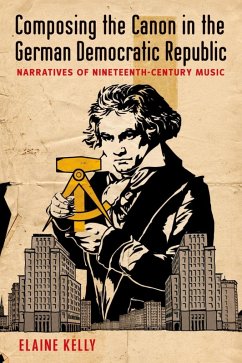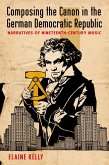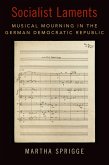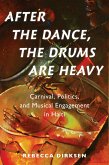When the German Democratic Republic (GDR) was founded in 1949, its leaders did not position it as a new state. Instead, they represented East German socialism as the culmination of all that was positive in Germany's past. The GDR was heralded as the second German Enlightenment, a society in which the rational ideals of progress, Bildung, and revolution that had first come to fruition with Goethe and Beethoven would finally achieve their apotheosis. Central to this founding myth was the Germanic musical heritage. Just as the canon had defined the idea of the German nation in the nineteenth-century, so in the GDR it contributed to the act of imagining the collective socialist state.
Composing the Canon in the German Democratic Republic uses the reception of the Germanic musical heritage to chart the changing landscape of musical culture in the German Democratic Republic. Author Elaine Kelly demonstrates the nuances of musical thought in the state, revealing a model of societal ascent and decline that has implications that reach far beyond studies of the GDR itself. The first book-length study in English devoted to music in the GDR,
Composing the Canon in the German Democratic Republic is a seminal text for scholars of music in the Cold War and in Germany more widely.
Dieser Download kann aus rechtlichen Gründen nur mit Rechnungsadresse in A, B, BG, CY, CZ, D, DK, EW, E, FIN, F, GR, HR, H, IRL, I, LT, L, LR, M, NL, PL, P, R, S, SLO, SK ausgeliefert werden.









